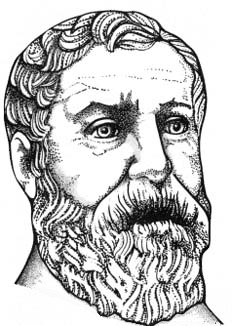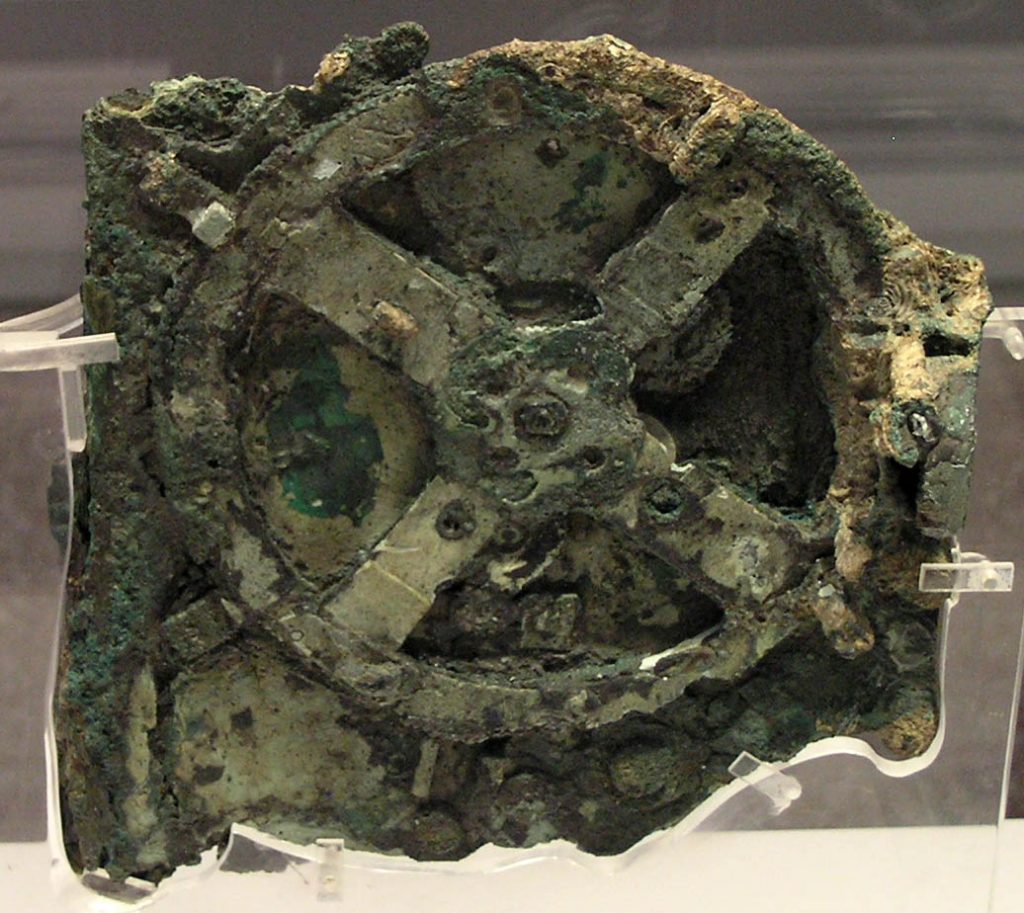Democracy, philosophy, and astronomy are among some of the “inventions” whose existence is widely attributed to the Ancient Greeks. While it’s true that these are important concepts which bear weight in world history, as a result, small feats go unrecognized in the shadow of these historical behemoths. Unbeknownst to many, Ancient Greece was also the birthplace of plenty of small machines, gestures, and technologies that we use day-to-day.
Vending Machines

17th-century German depiction of Heron
An Ancient Greek mathematician and engineer, Heron of Alexandria, created a contraption that dispensed a small amount of holy water for the price of one coin, which had to be manually inserted into the machine.
It’s funny to think about a time when vending machines were used for spiritual salvation rather than sweet or salty snacks, but Heron’s simple levered machine evolved and ultimately inspired the invention of modern vending machines—jam-packed with snacks and requiring cash in exchange for a pick-me-up.
Flipping the ‘Bird’
Another under-the-table Greek invention was the symbolic gesture of flipping people off. Typically intended today as a substitute for a loud or profane insult, historians say the gesture originated as a sexual reference.
Ancient Greeks “probably relied on the use of the middle finger to represent an erect penis,” wrote Max Nelson, a Classics professor at the University of Ontario, in his journal article, “Insulting Middle-Finger Gestures among Ancient Greeks and Romans.”
One key difference, Professor Nelson observed in a collection of Ancient Greek texts, was the older tendency to hold the finger horizontally to make crude gestures, as opposed to the upright middle finger used today when “flipping somebody off.”
Analog Computers

Antikythera mechanism fragment. The mechanism consists of a complex system of 30 wheels and plates with inscriptions relating to signs of the zodiac, months, eclipses and pan-Hellenic games. The study of the fragments suggests that this was a kind of astrolabe. The machine is dated around 89 B.C. and comes from the wreck found off the island of Antikythera. National Archaeological Museum, Athens, No. 15987.
One more ancient Greek invention which goes unreferenced is the very first analog computer, which took the name of the “Antikythera Mechanism.” The mechanical device was discovered off the shore of Antikythera, Greece, after having been recovered from a shipwreck in 1901. The purpose of the machine was to predict and identify eclipses and other astronomical anomalies using dozens of small, bronze gears, according to the BBC.
Scientists at the University College London (UCL) are using 3D computer modelling to build a replica of what the Antikythera Mechanism may have looked like in its prime, as only a third of the machine was recovered from the wreck.


